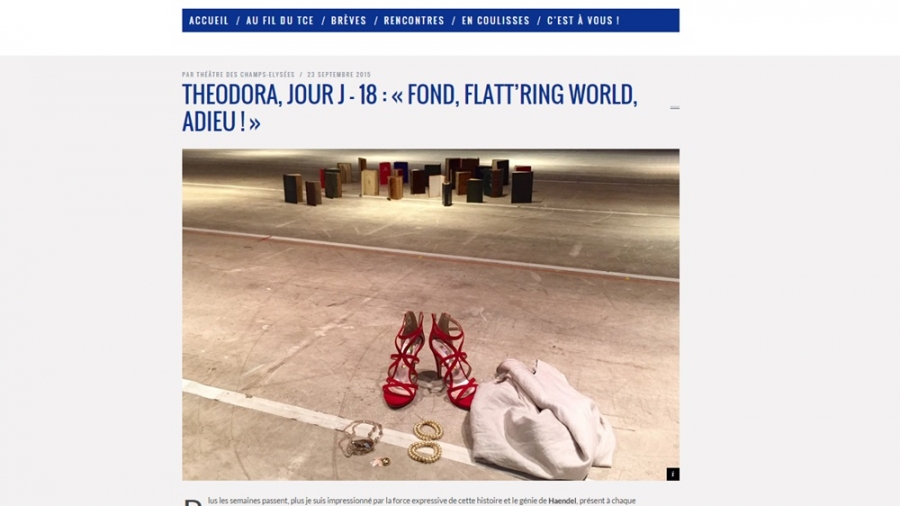For all the pieces written in his praise, authentic words from Philippe Jaroussky are somewhat hard to get by, so be sure to catch His Master’s Updates on the Théatre des Champs Elysée’s blog! [x]
As much as I love updates about red high-heels, let’s get serious for a moment: This is a production that’s not to be missed. William Christie and Les Arts Florissants don’t need much of an introduction; as far as Baroque is concerned, they’re one of the benchmarks other ensembles and conductors have to measure themselves against. To see more of the work of Stephen Langridge who’s setting the production in scene, let me point you to his website: [x].
After Paris, the production will be taken on an international tour (we don’t know for sure yet if scenic, half-scenic or concertante). Check the tour dates to see if there is a performance within your reach: [x]
Theodora by Georg Friedrich Händel is classified as a “dramatic oratorio”; it is meant from the start to be staged, unlike The Messiah, for instance. Theodora and Didymus are Christian martyrs, pursued for their faith. The plot is illustrating what living their faith means to them; we witness them staying true to their principles like selflessness and truthfulness, willing to pay the Ultimate Sacrifice in the end.
The piece merges elements of oratorios (like the extensive choir-pieces) and the spiritual topic with dramatic elements like a concise dramatic plot, featuring components that never grew out of fashion. There’s a lot of bromance going on between Didymus – a Roman soldier converted to Christianity – and his brother-in-arms, Septimius, and a variety of a prison setting where Didymus switches clothes with his Christian love Theodora to sacrifice his own freedom for that of Theodora’s.
To give you an idea of the sublime music, here’s the immortal Lorraine Hunt-Lieberson with “As with rosy steps the morn,” Irene’s aria.

